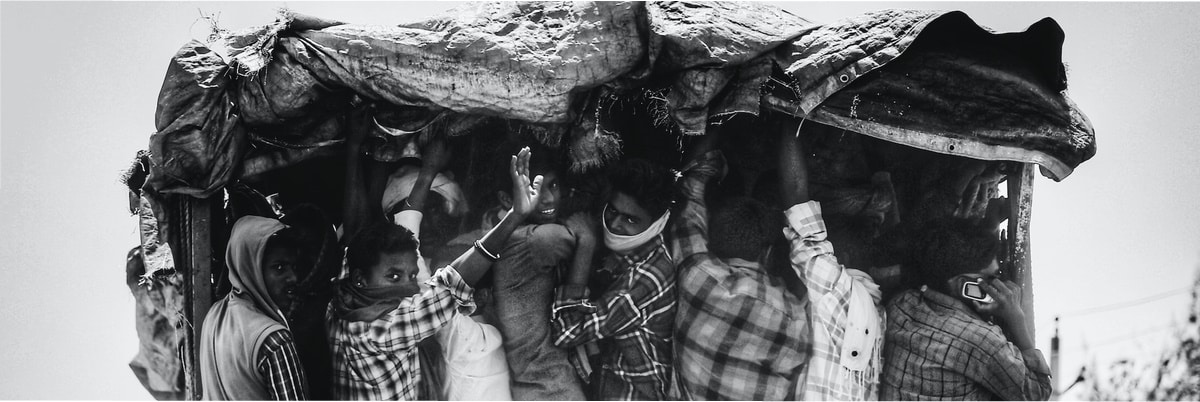The current migrations on the Central Mediterranean route, rather than from a real need spontaneously arising in search of a better life far from war and poverty, appear to be determined by external factors that intervene both through special funding and by artfully spreading, among young people in the countries of origin, a false and deceptive narrative of easy money and sex in handy havens (the countries of destination) with perpetual free welfare; especially in the more "welcoming" and permeable ones, due to lax controls and ideological favoritism. There are now substantial testimonies and complaints from local authorities against impressive recruitment campaigns of candidates for clandestine migration, that is, outside the legal channels of consular visas and the offer of even seasonal work.
It is enough to think of the ironic diversion of funds earmarked for Italian cooperation for international development, which now include, as an important component, support for the diaspora, albeit clandestine and unplanned. As if to say that the development of very poor countries, such as Sudan and Eritrea, also passes through the facilitation of the drainage of young resources in full working capacity who, in the best of cases, go to settle and earn elsewhere, perhaps then sending periodic remittances back home. In other words, the complete subversion of what have been the pillars of cooperation thinking for half a century, that is, promoting the countries' self-development and the creation of job opportunities at home, also to counter the phenomenon of uncontrolled population growth, in parallel with the brain and arm drain.
The very fact of migration over vast continental distances (Sub-Saharan Africa), sometimes huge and multi-continental distances (Bangladesh), proves beyond doubt the matrix not related to fleeing temporary events, such as conflict and famine, where instead people migrate to nearby destinations, just across borders or even within their own country (IDP- Internally Displaced Persons); with the hope of returning, at the first favorable opportunity, to their homes and loved ones left behind.
The striking comparative contrary example offered to us nowadays is that of Ukrainian war refugees (and before them the Syrians): all people driven by real conflicts - families or just mothers with offspring, especially given the compulsory male conscription - and who in any case return as soon as the news from the motherland turns to improvement or even simple stabilization. The author has directly witnessed the massive return flow of Ukrainian refugees on crowded rail routes, especially in the relatively shorter direction Krakow - Lviv - Kiev, but also from Hungary, Romania and Slovakia via the trans-Carpathian rail or road route. It is still about 20 hours by train with several stops and changes.
Even in the case of Ukraine, unfortunately, there is no shortage of unpleasant episodes of false refugees, i.e., affluent people (and in this case, the presence of young males is indicative of the corruptive capacity to get through border controls), who travel in large vehicles (frequent are the blazing Porsche Cayennes, cars worth close to 200 thousand euros) and who have no need to claim refugee assistance, but do so out of hubris; and ostentatiously use food and services, free transportation, and even exemption from parking fines, which obtuse and profligate governments grant, defying the discontent generated in the receiving populations. Retirees at the minimum in the Czech Republic or elsewhere, who may not even own a shabby vehicle, watch in astonishment as large, parked SUVs are indecently tolerated, almost respected. This, too, I recently eyewitnessed in Prague.
One question that several Europeans are now beginning to ask themselves - except for the fortunate Hungarians who enjoy a wiser government - is why decisions that have such an impact on the present and, more importantly, the future of entire nations and generations, do not find politicians in favor of proposing that migration policy choices closest to the common sentiment of the people be put to a popular referendum.
Why is it that such decisions, people wonder, far more important and impactful than, for example, divorce, free abortion or same-sex marriages, are entirely left to the discretion of NGOs and criminal smugglers who profit from them, ideologized or corrupt politicians, and are still removed from the scrutiny of the sovereign people? This is a mystery that still shrouds the bizarre contemporaneity we are living.
Tropicalist physician expert in international public health, has worked on 5 continents, always in top positions, with Italian MFA Development Cooperation, the European Commission (ECHO) and the United Nations (WHO-WHO). Former Adjunct Professor at the University of Trieste in Development Cooperation and Geopolitics of Health, as well as Guest Speaker at the MIHMEP Master's Program at SDA/Bocconi in Milan.



Scrivi un commento